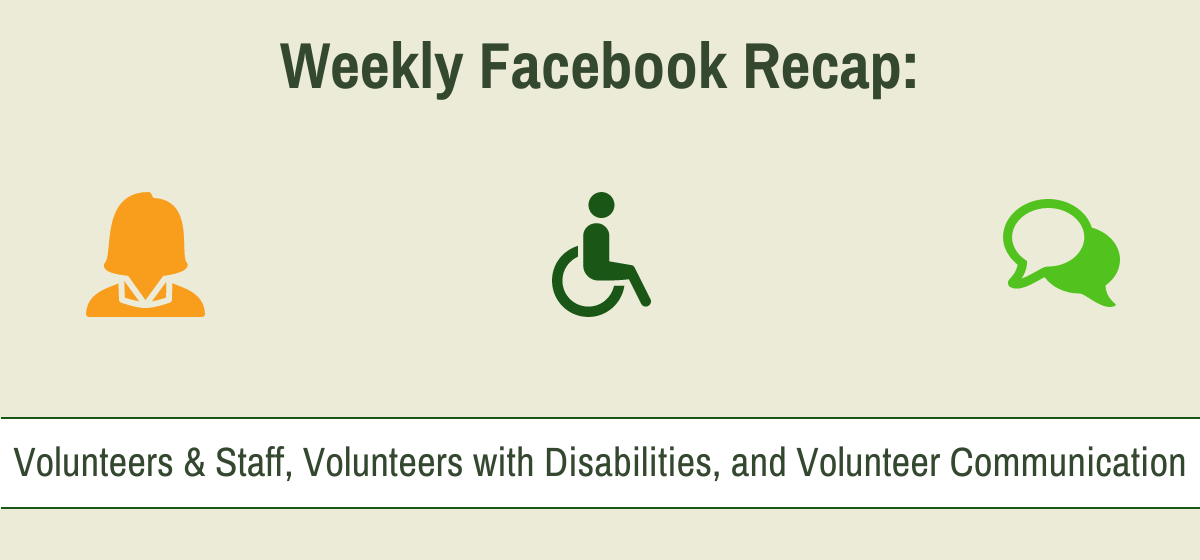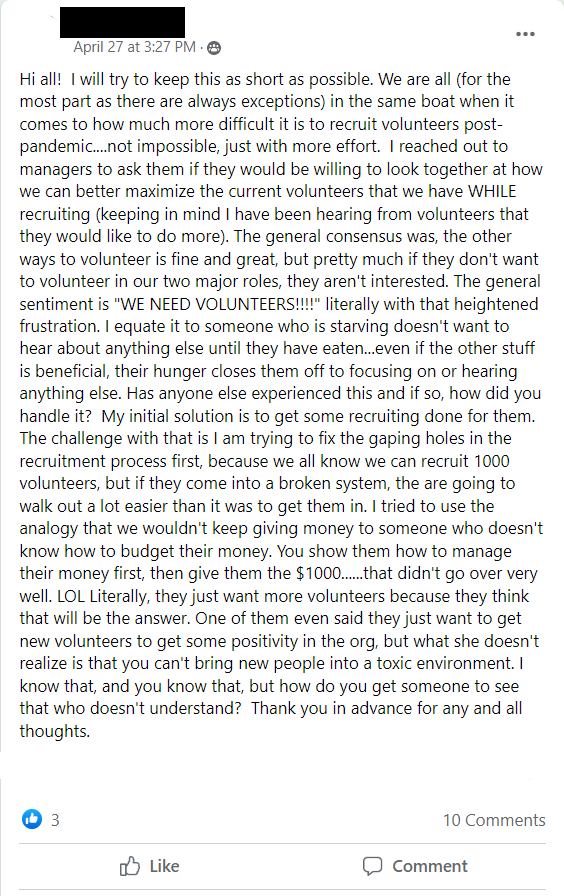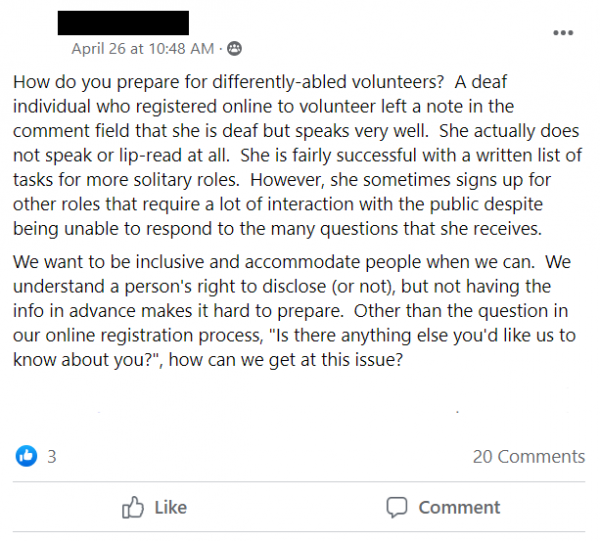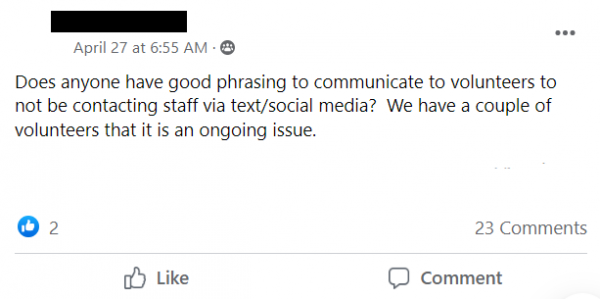
Recap for April 25th - May 1st
Thank you to everyone who contributed to the Facebook community this past week!
Maximizing Volunteers and Working with Staff
Of course, you want to maximize the time your volunteers spend with your organization. Whether it’s creating new roles or incorporating them into different departments, you might already have ideas about ways to do this. But how do you convince organizational staff to accept change and incorporate volunteers into different departments? There is no easy answer, but our coordinator community has a few ideas, including breaking down volunteer roles or completing a needs assessment.

Comments from the group
“I had a really hard time branching out my volunteer roles into other departments too…I started breaking up my volunteer assignments into multiple roles and it helped ensure the major tasks were getting done but allowed staff to see that specific trained volunteers could do more.”
“How used to doing a needs assessment are they? I think that could be a key coaching opportunity and has helped me many times before to frame reality and review actual roles/needs.”
“Try doing a presentation to the Board & exec. about what happens when you bring a volunteer into a less than effective program.”
Working with Volunteers who have Disabilities
Organizations should want to support all volunteers to help them be successful in helping you! This means keeping an open mind and sometimes finding new and different ways to incorporate volunteers, especially if you have volunteers who may have disabilities. Our coordinator community has a few suggestions on how this can be done:

Comments from the group
“We ask our [volunteer] references to share anything that they feel we should be aware of to support the applicants success, on our form…You could consider adding this sort of question to the application. Other than that we learn the most from a 1:1 interview and honest conversation about their desires and how to help them serve in the most successful ways.”
“I think you need to take the time to sit down and talk with her about how she is able to volunteer. Make sure when you send out opportunities, you are sharing exactly what it entails and requires. And then figure out how to make accommodations for the volunteer with her. Just be honest and explain that this is new to you and you could use her help in accommodating!”
“How are you communicating with this volunteer now? Just ask her what you want to know. Tell her this assignment will mean responding to questions from the public. Ask her how she will do that and if there is anything that you can do in setting up the assignment to make it more smooth for her. ”
Volunteer Communication: When, Where, and How
When it comes to volunteer communication, you want it to be clear and effective. As a coordinator, you might already be communicating with volunteers in this way, but how are they communicating with each other and with other staff? Do you have volunteers contacting staff off-hours, or on social media? There are some ways this can be addressed, whether it is creating a specific forum for this type of communication or setting clear rules and boundaries in your volunteer handbook. See what our coordinator community has to say on the topic:

Comments from the group
- “I would give volunteers a direct outlet. Let them know who they CAN contact with questions or concerns. Maybe host a roundtable forum where volunteers can ask questions/air grievances.”
- “Create a private Facebook group [or WhatsApp social group] for volunteers that they can use instead”
- “I think the biggest way to change that is to let them know how to communicate. And then don't respond to any other form of communication…Staff shouldn't be "friends" with their volunteers on social media, so they should ignore the messages that come to them…If staff need volunteers to have a cell number for them, then the organization needs to provide a work cell [or use a Google Voice phone number], but let the volunteers know it's only for calls and texts aren't checked. Then don't check the work cell after hours and don't respond to texts.”
 Written by
Written by